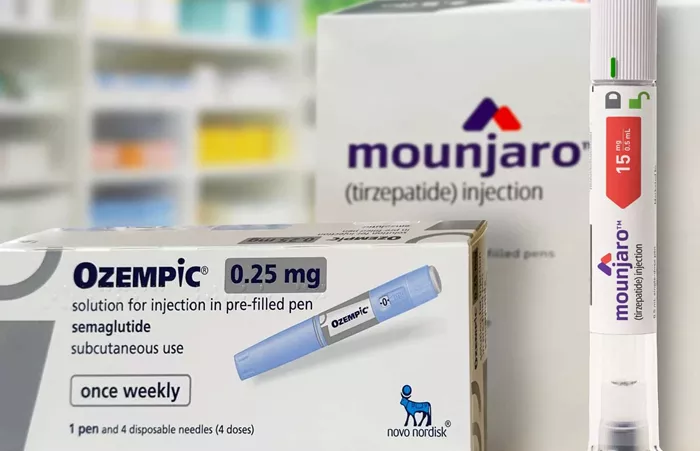In a significant move to address obesity in America, the Biden administration has announced a proposal that would require Medicare and Medicaid to cover weight-loss medications, including popular drugs like Wegovy, Zepbound, Ozempic, and Mounjaro. This initiative aims to enhance access to these medications for millions of Americans struggling with obesity.
The Department of Health and Human Services (HHS) unveiled the proposal on Tuesday, highlighting its potential to improve health outcomes for individuals at risk of diabetes, stroke, and cardiovascular diseases. According to a White House fact sheet, expanding coverage for anti-obesity medications could significantly reduce these health risks among the population.
However, the proposal faces uncertainty under the incoming Trump administration. Experts express skepticism about whether President-elect Donald Trump and his nominee for HHS, Robert F. Kennedy Jr., will support this initiative. Kennedy has previously criticized the idea of covering weight-loss drugs through government programs, advocating instead for expanded access to healthier food options and fitness programs.
Weight-loss drugs, also known as anti-obesity medications or GLP-1s, work by mimicking glucagon-like peptide 1 (GLP-1), a hormone that regulates appetite by signaling fullness between the gut and brain. Clinical trials have shown that participants using medications like Wegovy and Mounjaro can lose an average of 15% to 22% of their body weight—equivalent to 22.5 kilos (50 pounds) or more in some cases. However, not all users experience significant weight loss.
Despite their effectiveness, these medications come with a hefty price tag; Wegovy can cost approximately $1,349 per month in the U.S., making them unaffordable for many without insurance coverage. Currently, Medicare is prohibited from covering weight-loss drugs due to existing laws, while Medicaid coverage varies by state.
Should this proposal be implemented, it is expected to cost the U.S. government around $35 billion or more. The Centers for Medicare and Medicaid Services (CMS) estimates that approximately 3.5 million people on Medicare and 4 million on Medicaid could qualify for coverage under this new rule. However, research indicates that as many as 28 million individuals on Medicaid may be considered obese and potentially eligible.
Public opinion shows strong support for covering weight-loss drugs—many Americans believe that Medicare should provide coverage for these essential medications. A bipartisan coalition of lawmakers has also advocated for this change. However, within Trump’s inner circle, opinions are divided. While Dr. Mehmet Oz, nominated to lead CMS, acknowledges the potential benefits of these medications, Kennedy remains skeptical about their inclusion in government healthcare programs.
As discussions continue regarding this proposal’s future under a new administration, millions of Americans are left hoping for improved access to effective treatments for obesity.
READ MORE:
- Can Weight-Loss Injections Solve the Obesity Crisis?
- The 6 Best Fat Burning Drugs For Women
- What Should I Eat To Lose Belly Fat During Menopause?


